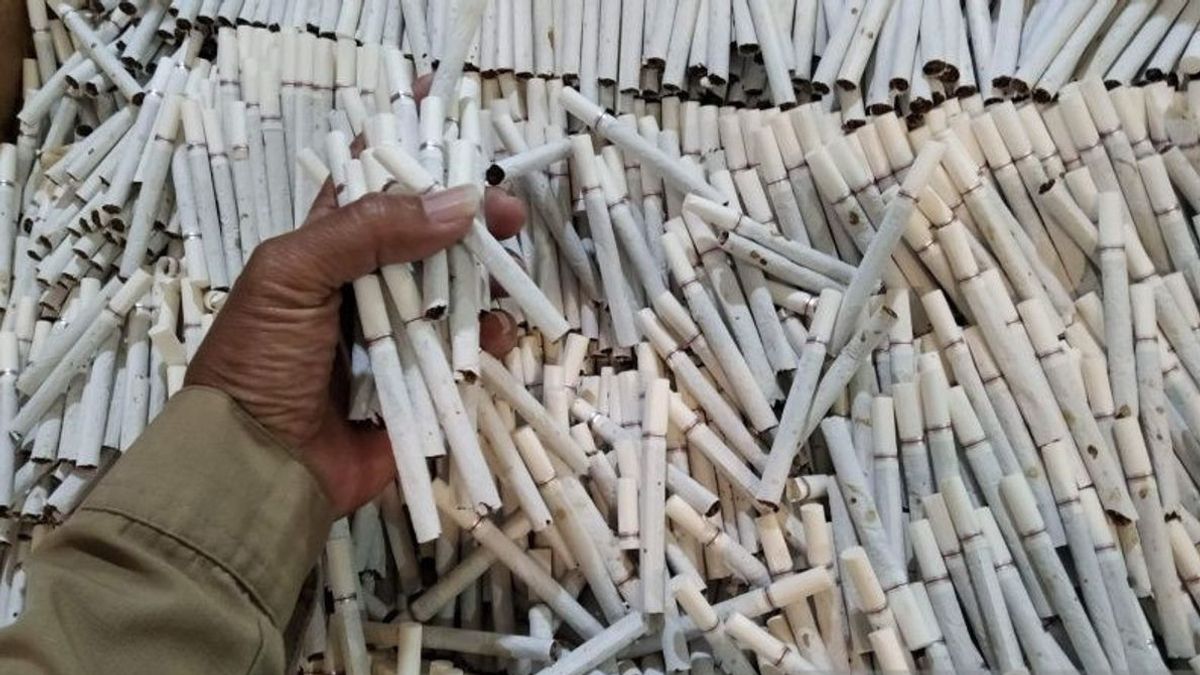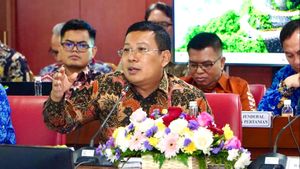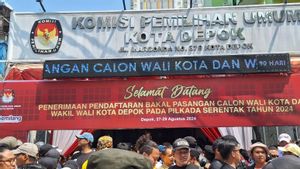JAKARTA - The government through the Minister of Finance (Menkeu) Sri Mulyani decided to increase the excise tariff on tobacco products (CHT) for cigarettes by 10 percent in 2023 and 2024.
In his explanation, the Minister of Finance stated that the increase in CHT rates in the machine kretek cigarettes (SKM), machine white cigarettes (SPM), and food kretek cigarettes (SKP) would be different according to the group.
"The average is 10 percent, later it will be shown by the Ministerial Decree (SKM) I and II which will increase on average between 11.5 to 11.75 (percent), SPM I and SPM II will increase at 12 to 11 percent, while SKP I, II, and III will increase by 5 percent," he said after facing President Jokowi at the Bogor Palace, quoted by the editors on Friday, November 4.
According to the Minister of Finance, the President requested that the tariff increase not only apply to CHT, but also to e-cigarettes and other tobacco processing products (HPTL).
It is stated that for e-cigarettes, the increase in excise rates will continue every year for the next five years.
Today it was also decided to increase excise duty from electronic cigarettes, which is an average of 15 percent for e-cigarettes and 6 percent for HTPL. This is true, every year it increases by 15 percent, for the next 5 years," he continued.
The Minister of Finance added that the government compiled excise instruments by considering a number of aspects ranging from agriculture to the cigarette industry. In addition, the government also pays attention to the target of reducing the prevalence of smokers aged 10-18 years to 8.7 percent as stated in the National Medium-Term Development Plan (RPJMN) for 2020-2024.
The next consideration, continued the Minister of Finance, is regarding the consumption of cigarettes which is the second largest household consumption after rice. In fact, this consumption exceeds the consumption of protein such as eggs and chickens.
The second is considering that cigarette consumption is the second largest consumption from poor households, reaching 12.21 percent for urban poor and 11.63 percent for rural communities. This is the second highest after rice, even exceeding protein consumption such as eggs and chickens, and tofu, tempeh which are foods needed by the community," he explained.
Furthermore, the state treasurer also said that the government decided to increase excise rates in order to control both consumption and cigarette production. The Minister of Finance hopes that the increase in cigarette excise tax can affect the decline in cigarette affordability in the community.
"In previous years, where we increased cigarette excise which caused cigarette prices to increase, so that the affordability or affordability of cigarettes would also decrease. Thus, it is hoped that consumption will decrease," closed the Minister of Finance Sri Mulyani.
The English, Chinese, Japanese, Arabic, and French versions are automatically generated by the AI. So there may still be inaccuracies in translating, please always see Indonesian as our main language. (system supported by DigitalSiber.id)













